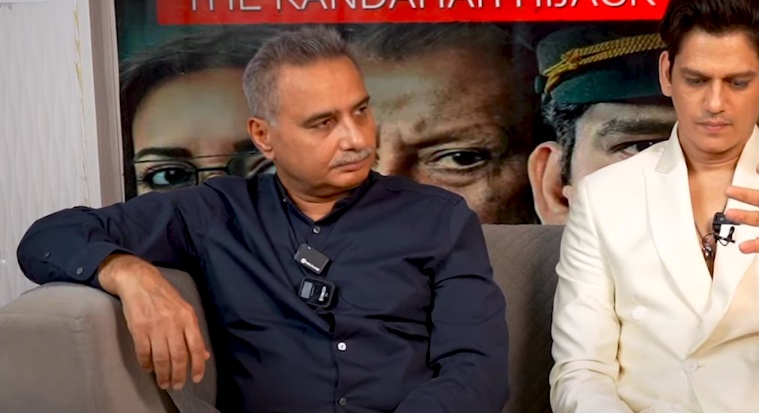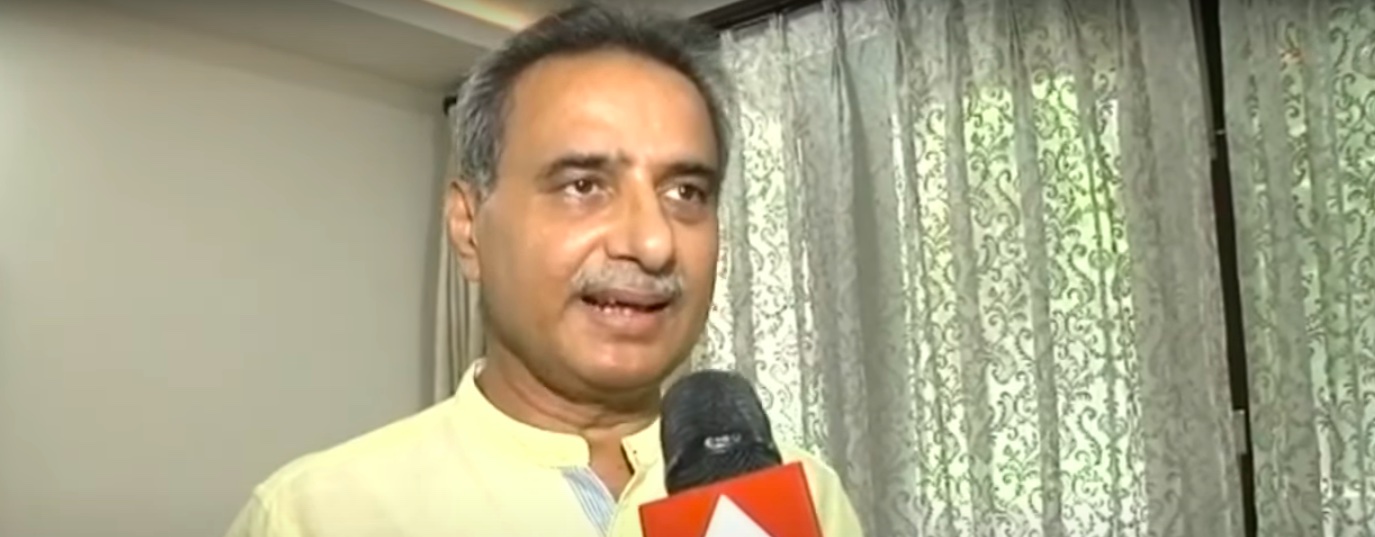Netflix’s ‘IC 814: The Kandahar Hijack’ unfolds the true story of a hijacking that took place in the last week of 1999. A flight leaving Kathmandu for Delhi was taken over by five terrorists who forced the pilots to change course and take the plane wherever they wanted. What was supposed to have been a two-hour flight turned into a week-long ordeal, and the passengers found themselves landing in Amritsar, Lahore, Dubai, and, finally, Kandahar. The show follows all the chaos that unravels while the authorities try to find a solution to the problem, and it falls on the captain of the plane to keep things as calm and safe as possible. Captain Sharan Dev (real name Devi Sharan) has to do whatever it takes to ensure the safety of the passengers. What happened to him following the events of the hijacking?
Captain Devi Sharan’s Quick Thinking and Composed Demeanour Kept Things Calm During the Hijack
Remembering the incident, the captain revealed how the hijackers took over the plane about forty minutes into the flight. The plane was over Lucknow when the hijackers forced their way into the cockpit and declared that they had been hijacked. This is also when they started to push the pilot to take the plane further rather than landing in Delhi. However, the fact that they didn’t have enough fuel to make that journey forced them to reconsider their plans.

After a 45-minute pit stop in Amritsar, where the captain had hoped the authorities would be able to neutralize the situation, the un-fuelled flight was forced to take off again. Flying over Pakistan’s airspace, the plane was refused permission to land in Lahore. The captain revealed that he deliberately made it look like he would land the plane on the highway. At the time, even his co-pilot was not aware of this move because, due to the presence of the hijackers in the cockpit, the captain couldn’t convey his strategy without it being overheard. He had hoped that the Lahore authorities would be threatened by this move and allow them to land properly, which is exactly what happened. But had the plan gone awry, the captain was prepared to land on the highway anyway in the hopes of saving at least a few lives.
Sharan said that for the eight days they spent in captivity, his mind was singularly focused on finding ways to keep the passengers safe and sound, no matter what it took. Calling himself the kind of person who never loses hope, the captain revealed that he and the passengers were prepared to fight if push came to shove, and the crew had prepared the passengers to have a quick escape through the emergency doors and the chutes if things got bad with the hijackers. He also revealed that sometimes, the hijackers would be in a good mood, telling jokes, playing games, and singing songs to lighten the mood. The captain confessed to having told a few airplane jokes while also gauging the mood of the hijackers to make sure that they were prepared to face anything if things got bad.
On the last day, Sharan was told by the Chief, one of the hijackers, to get out of the plane as quickly as possible. This is when the negotiations were done, the hijackers’ demands were met, and they were leaving the plane, ending the eight-day torture for the passengers. At the time, Sharan didn’t know what to make of this warning, but later, he thought it might have had something to do with the explosives that were on board. In hindsight, Sharan is glad that things turned out well for almost all of them, though he is still haunted by the incident.
Captain Devi Sharan Had an Illustrious Career as a Pilot

Captain Sharan was born to a farmer in a village in Haryana, India, and was the youngest boy among his siblings. His journey as a pilot shows him as a decorated captain who has never, but once, met a hitch in his flights. During almost the entirety of his career, he worked for Indian Airlines, which was later merged with Air India. In 1993, after being a co-pilot for six years, Sharan was made the captain of a Boeing 737 and later commanded an Airbus. A few years later, he was promoted to the position of deputy general manager.
Despite the trauma of the 1999 hijacking, Sharan exhibited his love and passion for flying when he went back to work after just one week of break. In the immediate aftermath of the incident, he talked with all sorts of news outlets, including ABC, CNBC, and The New York Times. His story has been reiterated in Indian media and news over the years. He has also been interviewed by several documentarians who covered the hijacking incident.
Captain Devi Sharan is Now Enjoying Retirement
Now in his early 60s, Captain Devi Sharan retired after a long career as a commercial pilot in 2020. He is married to Navneet, with whom he has two daughters, Diksha and Ashna. Both of them have followed in their father’s footsteps and are also pilots. Since the hijacking events, the captain has been very public about his experience and how he kept his calm on the flight. He revealed that he still has the mark on his neck, which he got from the hijackers putting their guns on him.
He said that for eight days, they had a gun against his neck, and it kept rubbing against his skin so much that it caused a wound, whose scar still reminds him of the eight days spent in the captivity of the terrorists. Sharan revealed the entire series of events in his book ‘Flight Into Fear,’ which he co-authored with Srinjoy Chowdhury and published in 2000. For his bravery in the face of immense danger, the captain was honored by then Prime Minister IK Gujral and received the AIMA Public Service Excellence Award in 2000 and an air safety award from the USA.
Read More: IC 814: Are Indrani and Chhaya Based on Real Air Hostesses?


You must be logged in to post a comment.